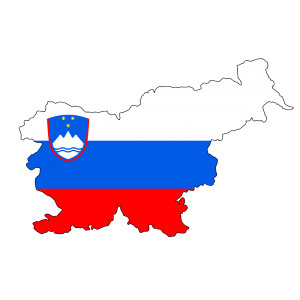Every year 21st February marks the celebration of International Mother Language Day. On this day we reflect on our mother tongue and the diversity of languages around the world. If you want to learn more about the Slovene language, read on and discover seven interesting facts. Are you ready?
#1: Slovene is spoken by some 2,500,000 million people around the world.
Most of these live in Slovenia, which is about 1.85 million people. The rest of them are wandering around the world and spreading our beautiful language. Slovene can most commonly be heard in Italy, Austria, Croatia, Hungary and Germany, but also in the USA, Canada, Argentina, Australia and the Republic of South Africa.
#2: Slovene is one of few languages to use dual – but certainly not the only one
Many people believe that dual is unique to the Slovene language, but this is hardly the case. Dual – albeit in different forms – is also used in the Sorbian language spoken in south-east Germany, Kashubian in the north of Poland, Celtic Breton in north-west France, modern Arabic and Hebrew.
#3: Slovene has 48 dialects and subdialects
This is a truly remarkable number considering our small geographical area. The dialects differ greatly, but they are joined into eight dialectal groups: Lower Carniolan, Upper Carniolan, Carinthian, Littoral, Styrian, Pannonian, Rovte and Kočevje.
#4: Slovene in numbers
Slovene has 25 letters, which we use to write 29 sounds. There are 3 grammatical numbers, 6 grammatical cases, 8 declensions, 3 grammatical genders and 4 tenses. Are you familiar with any of them?
#5: Slovene can also be learnt abroad
Slovene is taught at 54 universities in 25 countries around the globe.
#6: Slovene has its own alphabet
Slovenes use Gaj’s Latin alphabet developed by the Croatian linguist Ljudevit Gaj, but we have adapted it to our needs. Our form of this alphabet is called slovenica.
#7: How is the Slovene language called elsewhere in the world?
People from other countries have different names for Slovene (or Slovenian, as the English also call it). The Croatians call our language slovenski, the Serbs use slovenački, the Russians slovenskij, and the Germans Slowenisch. The Latin expression for our language is lingua Slavonica or lingua Slovenica.


